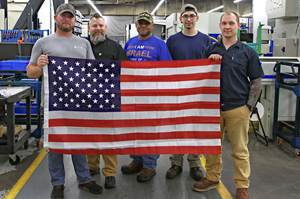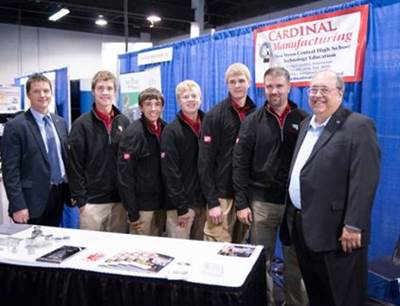Does This School Have the Formula for Mfg Education?
A high school in Wisconsin runs its manufacturing vocational program as a business. Students make parts for paying customers. The program is thriving, cash flow is strong, and local manufacturers can now hire recent graduates who already have experience in meeting customer demands.
Share




High school vocational manufacturing programs have a cost problem. Teaching math, English or history does not require investments in capital equipment. Teaching machining and welding does.
In fact, this problem is arguably the crucial challenge confronting vocational programs in school districts throughout the country. When funds are tight, it is the programs with the highest cost overhead that have the hardest time justifying or defending their funding. These programs tend to lose those struggles, and this is why manufacturing vocational programs are often underequipped—a fact that sends a counterproductive message to students. A lack of student interest in manufacturing should not be surprising if those students sense that their school isn’t interested either.
So what is the solution? For those school systems that are committed to the value of manufacturing instruction, how can a vocational program be funded to a level that is appropriate to this commitment?
One high school in western Wisconsin seems to have found an answer. That answer is working, and it has turned this school’s manufacturing program around. At Eleva-Strum Central High School in Strum, Wisconsin, the vocational manufacturing program used to be as under-resourced as that of any typical high school. About five years ago, things started to change. Today, the program has ample milling and turning equipment, including a CNC machining center and a CNC lathe, as well as sawing and welding capacity and even a towmotor.
The program also has enthusiastic enrollment. Students apply for the chance to complete the program, and they are filtered through an interview process.
Teacher Craig Cegielski initiated and oversaw the transformation of this school’s manufacturing instruction. In essence, he took the disadvantage that is inherent to high school manufacturing programs—the capital equipment overhead—and turned it into an advantage. That equipment is not just overhead, he saw, but also capacity. No class teaching math, English or history has the same opportunity to produce something of immediate and tangible value during the class period. Because students in manufacturing have to make something anyway as part of their coursework, why not have them make actual, sellable, end-use parts? Thus, under this teacher’s supervision, the highest-level class in the vocational manufacturing program began taking on contract machining work from commercial customers.
Now, that class goes by a different name. Eleva-Strum Central High School’s junior- and senior-year manufacturing class became “Cardinal Manufacturing.” It is a student-run job shop that just happens to be located on the grounds of the school.
Is This OK?
Thoughts swirl upon first hearing of this idea. Students do commercial work that helps fund the school’s program, using the very same time and facilities with which they earn their own grades. Is this model for a high school class . . . appropriate?
Actually, it’s hard to find anything wrong with it. High schools have a long history of students doing work to earn money for programs. It’s just that contract machining is work with much higher value than washing cars. And because the students perform this work on school grounds within the school’s shop, it does not bring any safety or liability concerns that weren’t part of the class already. Finally, far from “using” the students’ efforts, the arrangement gives these students a far better manufacturing education than they would have obtained without it. Rather than performing make-work projects that simulate production, the students are performing actual production—complete with production tolerances and deadlines. In fact, thanks to profit sharing (more on that below), the students get paid.
Practical questions come to mind next. How much work could a high school class be expected to complete? Where does the work come from? Isn’t the school now competing with other shops in the area? And how much money can this arrangement bring in?
Taking these questions in turn:
Certainly, the kids have only limited time available for this work. However, these are the most advanced manufacturing students at the school—they are able to work productively and semi-autonomously. Students can apply to join Cardinal Manufacturing in 11th grade only if they have completed metalworking classes in grades 8 through 10. The Cardinal Manufacturing “class” occupies two consecutive periods of an eight-period school day, so this is the time available for the students to do commercial work. However, they frequently supplement this time by also working in the shop outside the school day.
To find paying jobs, Mr. Cegielski calls on local companies the way any small job shop owner might. He also calls on many non-local companies where he maintains personal contacts. He says the work that he obtains from these companies is not charity. The chance to give a learning experience to a crop of students might sound appealing, but his shop’s low labor cost is the more significant reason why Cardinal Manufacturing wins business.
This might seem as though it would be grating to wage-paying contract shops in the area, but Mr. Cegielski says this isn’t the case. Because it works less time per week than even a one-shift operation, Cardinal Manufacturing can’t take much work away from area businesses. More importantly, some of these nearby shops see Cardinal Manufacturing as a valuable resource for doing the simple, small-batch work that they cannot perform cost-effectively. In some of the cases involving these shops, the simple work is a special order for a loyal customer the shop can’t refuse. In others, the work might be an internal project related to something like a new custom rack or shelving system. The high school shop gives these established manufacturers a way to avoid the money-losing choice of performing low-value production on their own high-end machines.
Mr. Cegielski says the income from this work is not enough to buy CNC machines. Those were donated. But the proceeds do provide enough funding to keep all of the shop’s equipment well maintained, and to keep the shop amply stocked with tooling, gaging and supplies.
The proceeds also provide enough to reward students at the end of the year. Hours worked by each student are tracked throughout the school year, and the profit-sharing payment at the end is proportional to the time put in. The typical student’s year-end profit-sharing check is around $500. During the school year ending in 2011, one ambitious student had put in so much extra time that his profit-sharing check surpassed $2,000.
The First Year
Advancing the program to this point has taken time. Converting the high school class into a viable business that could reliably and consistently serve customers was a gradual process.
The first year was hard, Mr. Cegielski says. To begin, he went begging to local businesses in search of equipment the shop was lacking—basic equipment the shop would need to begin functioning commercially. The program’s earliest students made products not for customers, but for the program itself. They made workbenches, for example, and welding booths. Before the program had revenue coming in, it had to create many of the resources it would use to earn this money.
But successes started to build. Graduates of the program became advocates for it within the companies that hired them. Employers took notice of what the school was trying to do and began to give more support. The towmotor was a donation, for example. In total, about $300,000 worth of equipment has been donated since the beginning of Cardinal Manufacturing five years ago.
The CNC machine tools were donated by MRS Machining of nearby Augusta, Wisconsin (see sidebar article). Matt Guse, MRS’s vice president and co-owner, says the machining center—a Milltronics VMC—used to be part of his company’s own internal training area, until the growth of the production floor squeezed this area away. The machine did not fit well with other equipment in the shop, and it has always been an easy machine for beginners to learn, so giving it to the school seemed fitting.
The second gift was considerably more strategic, Mr. Guse says. He recognized that Cardinal Manufacturing was becoming an excellent source of prospective talent for his own shop. Therefore, when MRS committed to further expanding Cardinal’s program by donating a CNC lathe, the company had one type of lathe in mind. MRS, a Mazak shop, donated a Mazak CNC lathe. Now, all students coming through Cardinal Manufacturing become familiar with same Mazatrol control that MRS uses extensively.
Teacher Commitment
While teaching the technical skills of manufacturing is the primary aim of the program, the exposure to daily commercial realities is what makes Cardinal Manufacturing’s instruction so distinctive. “Our kids feel the customers breathing down their necks,” Mr. Cegielski says.
He feels it with them. If a job is running late, the teacher stays late with the student who has to complete it. If a part is scrapped because of a mistake, the teacher is the one driving the truck to go purchase replacement material. Mr. Cegielski’s commitment to standing with the kids through all of the time they spend on the shop’s work is one of the keys to this program’s success.
Thanks to that commitment, he has been able to see this high school “business” improve and mature. The “business” becomes more like a business—with no quote marks around the word—with each passing year.
The latest challenges relate to the high volume of work, he says. To respond to these challenges (good challenges to have), the shop will make its next decisive move forward. In the coming school year, the teacher plans to admit students to the program who will not perform hands-on manufacturing work as part of their daily assignments, but instead will fill support roles.
For example, the shop needs someone in an engineering role to manage jobs and write programs. The shop also needs someone who can engage with visiting and phoning customers like a receptionist would, while also overseeing marketing tasks necessary to promote the shop. Roles such as these would be part of any established manufacturing facility. Now, Cardinal Manufacturing will begin exposing students to this kind of manufacturing-related work as well.
Related Content
Manufacturing Madness: Colleges Vie for Machining Title (Includes Video)
The first annual SEC Machining Competition highlighted students studying for careers in machining, as well as the need to rebuild a domestic manufacturing workforce.
Read MoreInside Machineosaurus: Unique Job Shop with Dinosaur-Named CNC Machines, Four-Day Workweek & High-Precision Machining
Take a tour of Machineosaurus, a Massachusetts machine shop where every CNC machine is named after a dinosaur!
Read MoreFinding the Right Tools for a Turning Shop
Xcelicut is a startup shop that has grown thanks to the right machines, cutting tools, grants and other resources.
Read MoreFinding Skilled Labor Through Partnerships and Benefits
To combat the skilled labor shortage, this Top Shops honoree turned to partnerships and unique benefits to attract talented workers.
Read MoreRead Next
Video: Perspectives on Cardinal Manufacturing
An innovative high school vocational manufacturing program has students doing production work for paying customers.
Read MoreSetting Up the Building Blocks for a Digital Factory
Woodward Inc. spent over a year developing an API to connect machines to its digital factory. Caron Engineering’s MiConnect has cut most of this process while also granting the shop greater access to machine information.
Read MoreRegistration Now Open for the Precision Machining Technology Show (PMTS) 2025
The precision machining industry’s premier event returns to Cleveland, OH, April 1-3.
Read More

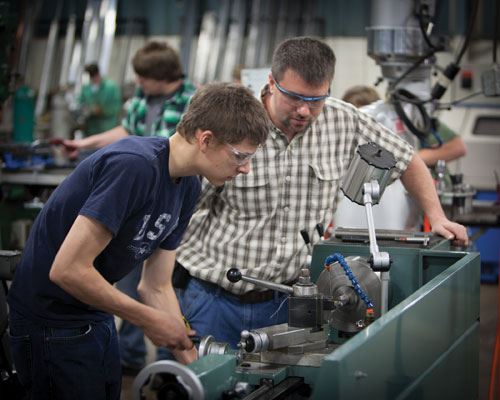
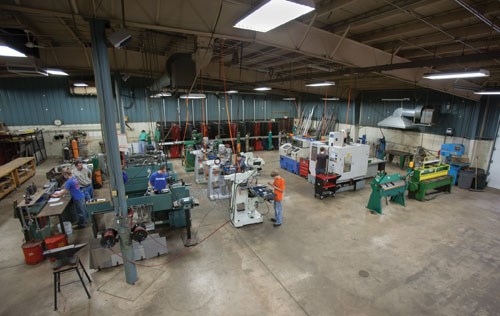
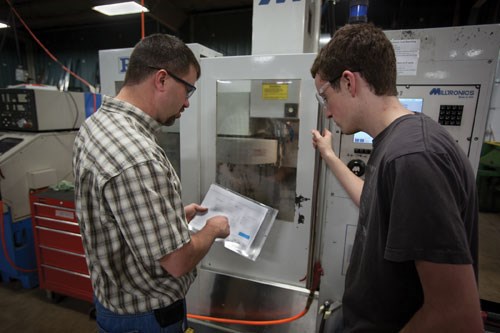
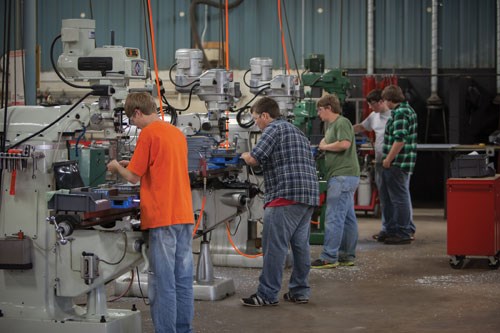
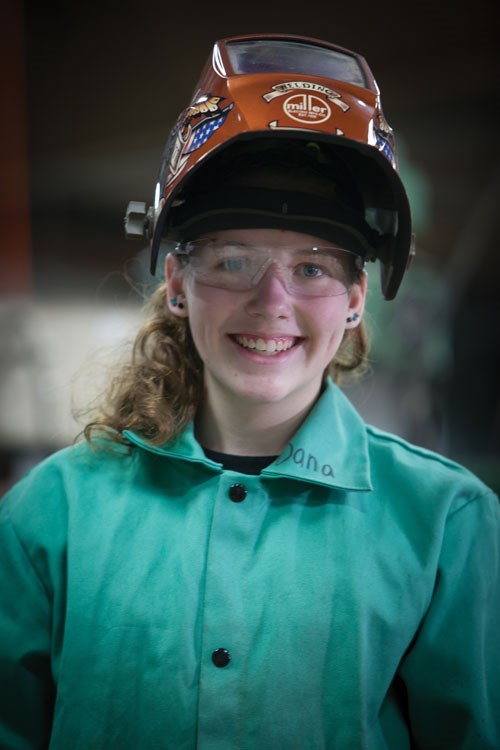
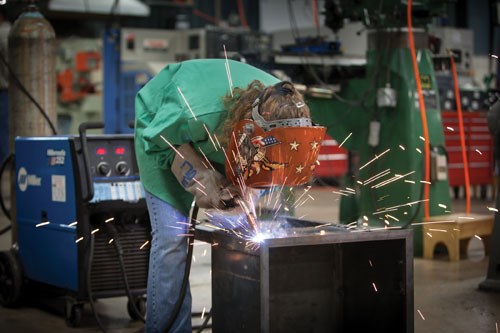
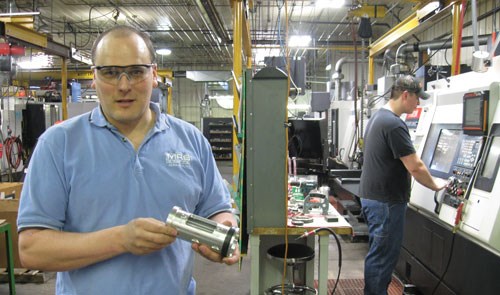




















.jpg;maxWidth=300;quality=90)













